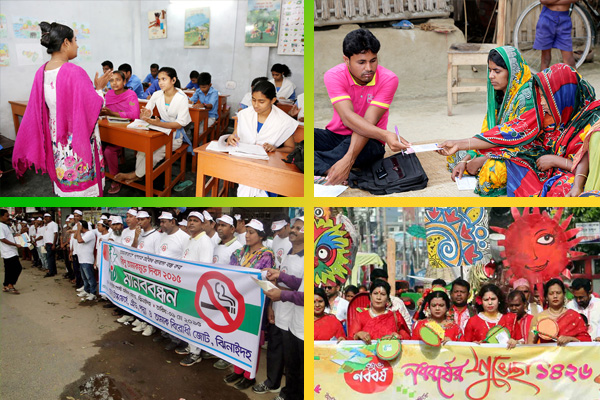Recents Activities

Promotion of Sustainable Agriculture Practice (PSAP) with less irrigation water
Agriculture is the primary source of livelihood for the majority of people in Bangladesh. About 80 percent of the total populations live in the rural areas of this country. Over the last 20 years there has been a large increase in the extraction of groundwater for irrigation in Bangladesh.In fact, approximately 95 percent of the groundwater extracted is for irrigation, mainly for Boro [dry season] rice production. In each year, the amount of arsenic added to arable soil, mainly paddy fields, through irrigation amounts to around 1,000 tones. In the west southwest of Bangladesh, where the highest concentrations of arsenic are found in soil, irrigated land had higher levels compared to adjacent non-irrigated fields. So, that soil concentrations of arsenic are increasing over time because of irrigation.
An attempt to raise agricultural productivity was made by introducing modern technology through the uses of chemical fertilizers and agro-chemical, irrigation and high-yield varieties. These technologies have been largely damaging the agro-ecosystem, productivity of soil, stability of production, farmers’ economy and human health. Considering this situation an alternative strategy termed as Alternative Ecological Agriculture should be taken which concentrates on increasing production with lessons learnt from nature and not to aggressive act upon it in the case chemical-dependent agriculture and also surface or ground water dependent.

